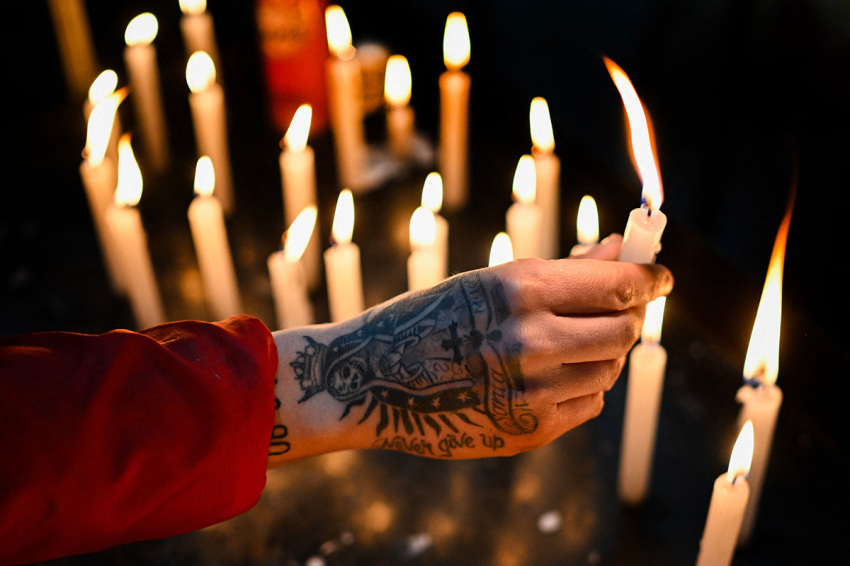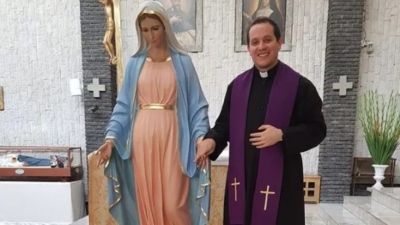'Santa Muerte' cult leading to 'notable increase' of demonic activity in Mexico, exorcist warns

A Roman Catholic priest and exorcist in Mexico has warned that the growth of the "Santa Muerte" cult is leading to a "notable increase" in demonic activity in the country, including demonic possession.
Father Andrés Esteban López Ruiz, who has served as an exorcist in the Archdiocese of Mexico since 2006, penned an article for the Rome-based International Association of Exorcists last month claiming that the Santa Muerte cult — whose idol is a female personification of death — is satanic and steeped in occult rituals, as noted by ACI Prensa, the Spanish-speaking version of Catholic News Agency.
Warning that the swelling ranks of the cult's adherents "implicitly or explicitly worship Satan, risking submitting themselves to him and experiencing his extraordinary action," he also said that the "proliferation of this cult has led to a notable increase in the extraordinary action of the devil" where it is practiced.

Tracing Santa Muerte's origins to the 1960s and noting its explosion in popularity after being promoted in Mexico City's Tepito market, López said that while it is not a "pre-Hispanic" cult, Santa Muerte has "a recent origin and distant past."
The cult's obsession with death and the underworld is reminiscent of the pre-Hispanic cults that dominated the region before the arrival of Christian Europeans, though it often syncretizes Catholic teachings, he said.
The exorcist further noted that many of the cult's occult rituals emerged from Catemaco, a town in the Mexican state of Veracruz infamous for its traditions of "witchcraft, shamanism, and occultism."
The confluence in the region of "Brazilian quimbanda, Cuban Santeria, pre-Hispanic cultures, and occult satanism" have led to what López described as "the Mexican version of satanic worship" that finds its expression in Santa Muerte.
López said adherents of Santa Muerte will sometimes make "formal pacts with the devil" in exchange for supernatural powers, riches and good fortune, and that even if someone has not made a formal pact, "they at least do so internally."
“These very serious sins place those who commit them under the direct control of Satan and, with divine permission, can easily become occasions for his extraordinary action,” he warned.
López noted that exorcists have even encountered possessions and demonic attacks against people who have partaken of drugs that were formally offered to the Santa Muerte idol.
Santa Muerte is also inextricable with many of the crimes afflicting Mexico, such as "robbery, smuggling, fraud, murder, kidnapping, drug trafficking and human trafficking," which has prompted the Mexican government to view it as a national security threat, López wrote.
"Prisons, in particular, have become privileged places for this cult and there does not appear to be a single prison in Mexico where it is not practiced," he said.
Noting that Mexican bishops have openly declared Santa Muerte to be "a cult of Satan," López advised the Catholic Church to offer "a pastoral response" to its spiritual evil by offering "Gospel proclamation, catechesis, and education," as well as sacraments and prayer.
"However, in many cases, major exorcism is necessary to assist all those people who have suffered the cruel wounds of Satan through the cult they paid to the 'Santa Muerte,'" he added.



























